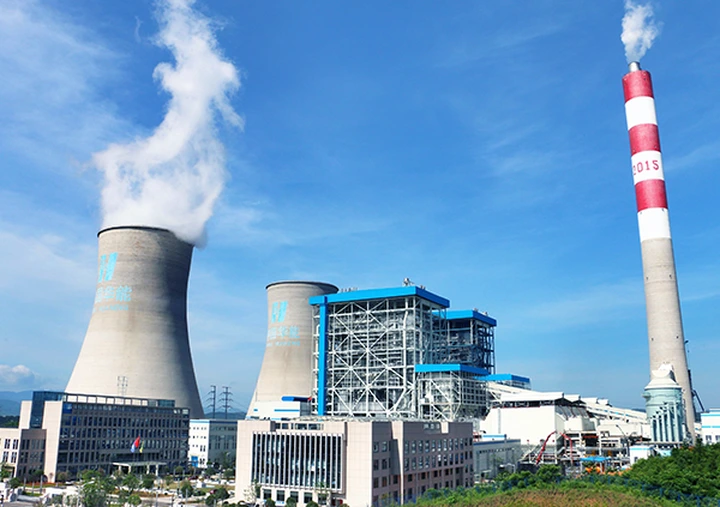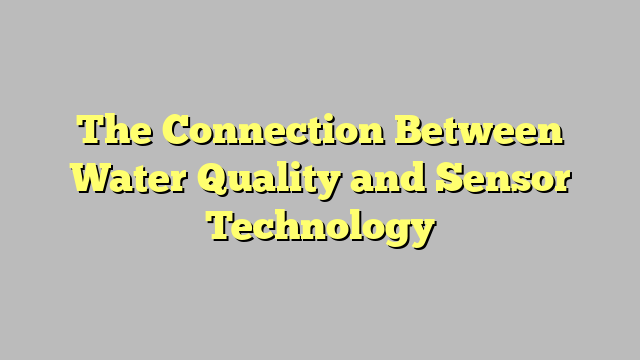
In an era where water quality is of paramount importance, the role of advanced sensor technology cannot be overstated. As populations grow and environmental challenges increase, ensuring the safety and purity of our water sources has become a critical concern. Water quality sensors have emerged as essential tools in monitoring various parameters, providing real-time data that is crucial for environmental protection, public health, and industrial processes.
At the forefront of this technological advancement is BOQU Instrument, a company dedicated exclusively to the development and production of water quality analyzers and sensors. With a product range that includes water quality meters, dissolved oxygen meters, and pH sensors, BOQU Instrument focuses on delivering precise and reliable measurements. Their commitment to innovation and quality positions them as a leader in the field, highlighting the vital connection between water quality and sensor technology.
Importance of Water Quality
Water quality is crucial for both human health and environmental sustainability. Clean water is essential for drinking, cooking, and sanitation, directly impacting health outcomes. Contaminated water can lead to serious health issues, including gastrointestinal diseases and long-term health complications. Ensuring access to safe water is a priority that necessitates constant monitoring and improvement of water sources.
Beyond human health, water quality plays a vital role in ecosystem health. Aquatic life depends on balanced water chemistry, including appropriate levels of nutrients, dissolved oxygen, and pH. Pollution can disrupt these delicate balances, leading to harmful algal blooms and the decline of fish populations. Protecting water quality not only supports biodiversity but also maintains the overall health of the planet.
In the context of industry and agriculture, water quality is equally significant. Contaminated water can affect crop yields and the safety of food production. Industries rely on high-quality water for processes, which can influence productivity and compliance with regulations. As such, effective water quality monitoring and analysis through advanced sensor technology is essential for ensuring safe and efficient usage of water resources.
Water Quality Testing Solutions for Schools
Overview of Sensor Technology
Sensor technology plays a crucial role in monitoring and analyzing water quality. These devices are designed to measure various parameters, such as pH levels, dissolved oxygen, turbidity, and other chemical constituents. By utilizing advanced materials and precise calibration techniques, water quality sensors can provide accurate and reliable data, essential for managing water resources effectively.
At the heart of water quality sensors lies the ability to transform physical and chemical characteristics of water into measurable signals. This process involves various sensing technologies, including electrochemical, optical, and electronic components. Each type of sensor offers unique advantages suited to specific applications, allowing for real-time monitoring that is vital in both environmental and industrial contexts.
As the demand for clean and safe water rises, innovations in sensor technology continue to evolve. Manufacturers like BOQU Instrument are dedicated to the development and production of water quality analyzers and sensors that meet rigorous quality standards. These advancements not only enhance data accuracy but also facilitate proactive measures in maintaining water quality, ultimately contributing to public health and environmental sustainability.
Types of Water Quality Sensors
Water quality sensors are designed to measure various parameters of water to ensure it is safe for consumption and environmental health. One common type is the pH sensor, which measures the acidity or alkalinity of water. pH levels are crucial as they can affect the solubility and availability of nutrients and contaminants. These sensors are widely used in water treatment facilities, aquaculture, and environmental monitoring to maintain optimal water conditions.
Another essential water quality sensor is the dissolved oxygen meter. This instrument measures the amount of oxygen dissolved in water, which is vital for aquatic life. Low levels of dissolved oxygen can indicate pollution or excessive organic matter, leading to aquatic dead zones. These meters are commonly used in fisheries, wastewater treatment plants, and research studies to ensure healthy aquatic ecosystems and compliance with environmental regulations.
Conductivity sensors are also important in the assessment of water quality. They measure the ability of water to conduct electricity, which correlates with the concentration of ions in the solution. High conductivity levels can indicate the presence of impurities or contaminants, making these sensors valuable for monitoring well water, groundwater, and surface water. This information helps in managing water resources and protecting public health.
BOQU Instrument’s Innovations
BOQU Instrument has made significant strides in the development of water quality sensors, focusing on enhancing the reliability and accuracy of water quality analysis. Their range of products, including water quality meters and pH sensors, reflects a commitment to innovation and meeting industry standards. By integrating advanced technologies, BOQU ensures that their sensors provide precise measurements, allowing users to monitor water quality effectively.
The company’s dedication to research and development has led to the creation of highly specialized instruments, such as the dissolved oxygen meter. This particular innovation has been vital for applications in environmental monitoring, aquaculture, and wastewater treatment. BOQU’s emphasis on user-friendly design also empowers operators to obtain critical data with ease, fostering better decision-making in water management practices.
Moreover, BOQU Instrument continuously seeks feedback from customers to enhance their products. This customer-centric approach drives the development of new features and improvements, ensuring that their water quality analyzers and sensors not only meet current demands but are also prepared for future challenges. Through ongoing innovation, BOQU remains a leader in water quality measurement, contributing to a sustainable and clean water supply.
Future of Water Quality Monitoring
The future of water quality monitoring is poised to undergo significant transformation thanks to advancements in sensor technology. Organizations like BOQU Instrument are at the forefront, pushing the boundaries of innovation in water quality analyzers and sensors. These developments will lead to more accurate, real-time monitoring of various parameters including pH, dissolved oxygen, and other critical indicators of water health. The integration of smart sensors will allow for remote monitoring and instant data transmission, enhancing the ability to respond quickly to water quality issues.
As technology evolves, we can expect an increase in the use of artificial intelligence and machine learning algorithms in data analysis. This will enable better prediction models and more efficient management of water resources. Sensors will become more compact and energy-efficient, allowing them to be deployed in more remote locations. Enhanced connectivity through the Internet of Things will also play a crucial role, allowing for a seamless flow of information between various stakeholders involved in water management, from local communities to government agencies.
Moreover, public awareness and concern regarding water quality will drive demand for more accessible monitoring solutions. As more people become engaged in environmental issues, the availability of user-friendly water quality sensors will empower individuals to participate in monitoring their local water sources. This grassroots approach, combined with advanced technology, will foster a collaborative effort in ensuring clean and safe water for future generations.



